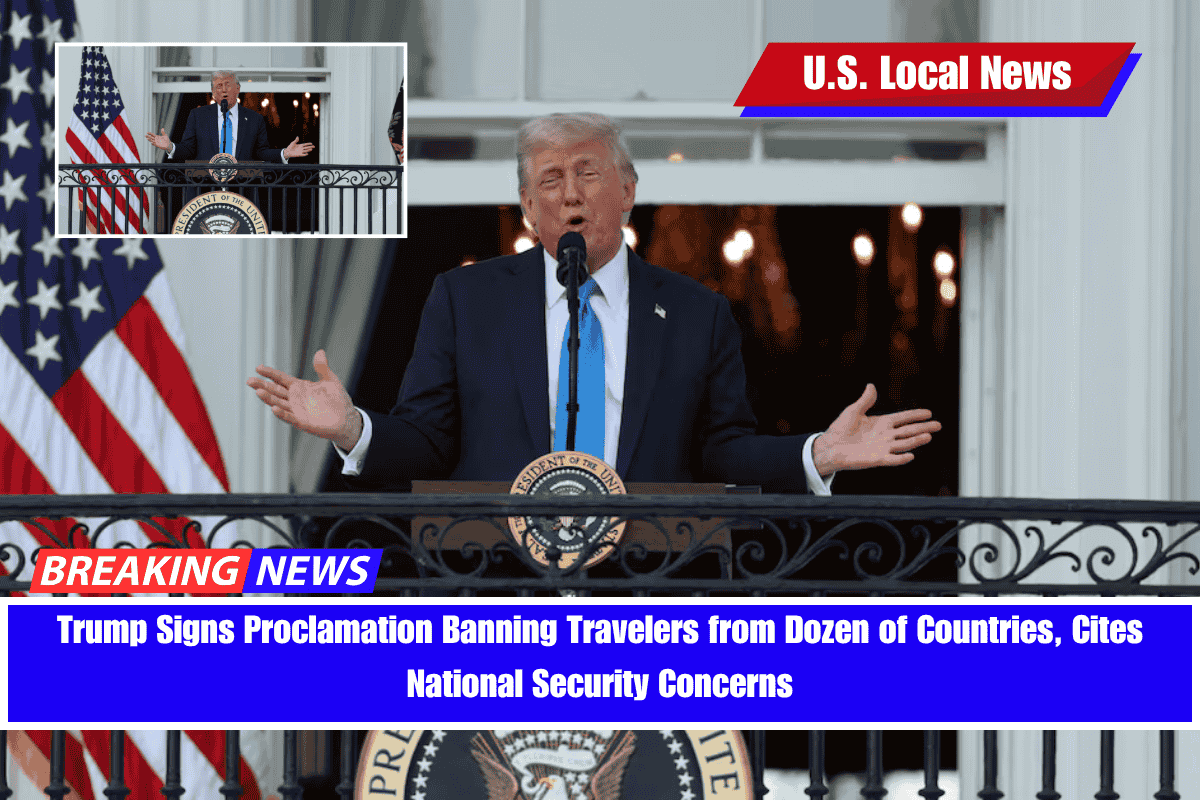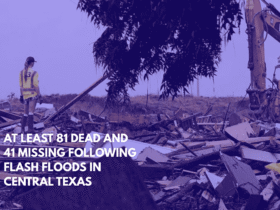On Wednesday, President Donald Trump signed a proclamation that imposes sweeping entry restrictions on travelers and immigrants from a dozen countries, citing national security concerns.
The proclamation fully bans entry from Afghanistan, Myanmar, Chad, Republic of the Congo, Equatorial Guinea, Eritrea, Haiti, Iran, Libya, Somalia, Sudan, and Yemen. Additionally, partial restrictions will apply to travelers and immigrants from Burundi, Cuba, Laos, Sierra Leone, Togo, Turkmenistan, and Venezuela.
Details of the Proclamation
The ban affects individuals seeking to enter the U.S. permanently, including legal immigrants and certain temporary visa holders like tourists. The restrictions will take effect on Monday, June 9, at 12:01 a.m. The move comes amid concerns about terrorism, inadequate vetting, and lack of cooperation on deportations from some of the affected countries.
White House spokeswoman Abigail Jackson emphasized that the proclamation aims to protect Americans from “dangerous foreign actors” and those who pose a threat due to insufficient vetting, high visa overstay rates, or lack of information-sharing. She added, “President Trump will always act in the best interest of the American people and their safety.”
Exemptions to the Ban
The proclamation allows certain exemptions, including for U.S. permanent residents, spouses and children of U.S. citizens with evidence of identity and relationship, Afghans who assisted American forces and hold special visas, diplomats, athletes, and dual nationals with passports from non-banned countries.
The Boulder Attack and Its Connection to the Ban
The announcement follows a Boulder, Colorado attack in which an Egyptian national was identified as the suspect. The suspect had overstayed his tourist visa. Although Egypt was not added to the banned countries list, the proclamation directs officials to assess Egypt’s vetting policies in light of the attack.
In a video statement, Trump referenced the Boulder attack, stating it “underscored the extreme dangers posed to our country by the entry of foreign nationals who are not properly vetted.” He further reiterated his administration’s intent to prevent individuals from entering or overstaying their visas if they present a threat to U.S. safety.
Trump’s Previous Travel Bans
This new proclamation continues Trump’s precedent of issuing travel bans, which began during his first administration. His January 2017 travel ban targeted primarily Muslim-majority countries, including Iran, Iraq, Libya, Somalia, Sudan, Syria, and Yemen.
The initial ban caused widespread backlash and legal challenges, but the Supreme Court eventually upheld a revised version of the ban in 2018.
Over the years, Trump’s restrictions expanded to include Venezuela, North Korea, and additional countries, such as Nigeria and Eritrea. The Biden administration reversed these policies upon taking office.
Potential Legal Challenges
Like previous versions, this new proclamation is expected to face legal challenges. The Trump administration’s earlier travel bans faced significant opposition from civil rights organizations, which argued that they were discriminatory.
However, the Supreme Court upheld the bans based on national security grounds, allowing the president wide discretion in restricting foreign nationals’ entry.
Future Considerations and Potential Changes
Trump’s decree also includes a provision to potentially revise the list of banned countries. If countries improve their security measures, they may be removed from the list, while other nations could be added if threats emerge. The White House has stressed that these actions are designed to address current national security concerns and will evolve as needed.











Leave a Reply